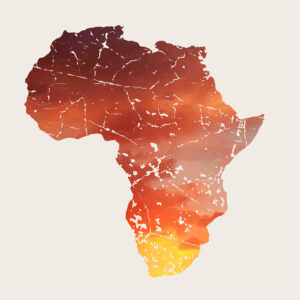Russia and China have become increasingly prominent players in African politics over the last decade. Human rights activists, democracy advocates and security analysts should all be concerned.
If the United States wants to combat this growing authoritarian threat, it is critical to understand what these two global competitors hope to gain from their investment in Africa and how we can effectively counteract their growing power.
China sees Africa as a supporting act in its own economic development and a way to help legitimize the Chinese Communist Party’s (CCP) position on the global stage. Xi Jinping’s decision to pour hundreds of billions of dollars into Africa through the Belt and Road Initiative has deepened Sino-African economic ties to the point that China is now Africa’s largest trading partner.
Chinese aid also supports corrupt African regimes, secures natural resources for the CCP, and forces African states to adopt foreign policy platforms that the Chinese find palatable. Beijing’s decision to pressure Eswatini, a tiny African country on the southern end of the continent, to break its diplomatic relationship with Taiwan shows how China uses its money to further its foreign policy goals.
Meanwhile, Russia’s re-engagement with Africa seems to be focused on securing access to desirable military positions while simultaneously attempting to gain an economic foothold on the continent. Through weapons sales and the deployment of mercenary forces to help quell the spread of terrorism across West Africa, Russia has acquired control over mineral resources and increased its influence in geostrategic regions like the Suez Canal.
Trade between Russia and Africa has also increased substantially in recent years. A second Russia-Africa summit — where discussions about deepening economic partnerships will certainly be on the agenda — is scheduled for this fall in Ethiopia.
While the West would like to see democracy and human rights flourish, Russia and China are presenting African states with an alternative, authoritarian path to development. To win this ideological battle, the United States must make itself an integral part of Africa’s economic growth. To isolate the Chinese and the Russians, America must prove that an economic partnership with the U.S. is in Africa’s best interest — but how can this be done?
First, the United States needs to align its rhetoric with its actions. America has repeatedly stated its interest in helping develop the world’s poorest countries, but it continues to enact policies that impoverish African producers. A fine example of this can be seen in the United States’ decision to subsidize American cotton producers even though doing so artificially lowers the global price of cotton, hurting millions of Africans who rely on cotton revenue. Eschewing price-distorting subsidies like this would signal to African countries that the United States genuinely values African development.
Second, the United States needs to expand the African Growth and Opportunity Act (AGOA). While the AGOA gives African producers preferential access to the American market for thousands of products, the legislation has been underused. Many African producers are unaware of their potential to benefit from it. The AGOA will expire in 2025 — policymakers should expand the legislation and require African states to create national use strategies that have been proven to help people benefit from the AGOA’s provisions. Doing so would allow African producers to build relationships with the American consumer market and further increase the amount of trade between the two partners.
Finally, America needs to make more of an effort to create strategic partnerships with African states through improved diplomatic relations. Thankfully, the Biden administration has announced that a summit will be held in December, but the last U.S.-Africa summit was held in 2014. In addition, it has been seven years since an American president visited Africa, and Joe Biden has no plans to travel there soon. This lackluster engagement makes it seem like Africa is a foreign policy afterthought instead of a priority.
More and more African heads of state are considering the authoritarian development path that China and Russia are presenting to them, but America can reverse this trend by adopting a strategy that prioritizes Africa in American foreign policy. Deepening economic ties, strengthening diplomatic relations and signaling to the world that America takes Africa seriously would be a wise move for the administration.
Let’s hope it chooses wisely.

